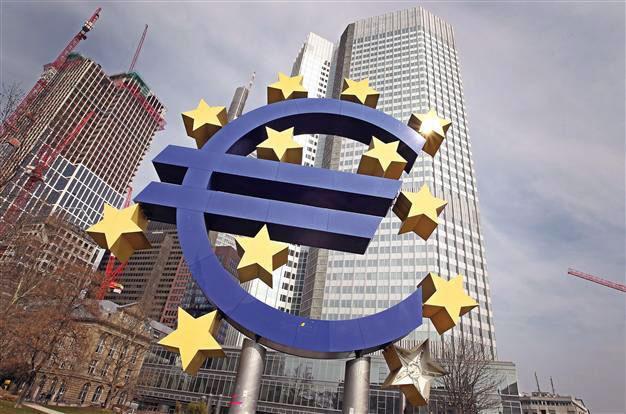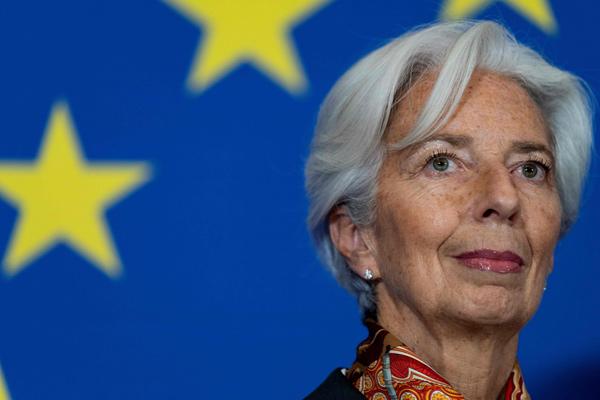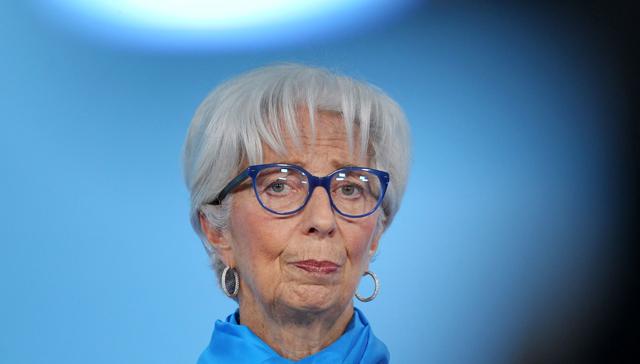You are here
Easy money 'side effects' concern ECB policymakers
By AFP - Jan 16,2020 - Last updated at Jan 16,2020

In this undated photo, the Euro logo in front of the European Central Bank in Frankfurt am Main, central Germany, is seen (AFP file photo)
FRANKFURT AM MAIN — European Central Bank (ECB) policymakers highlighted potential "side effects" of ultra-loose money at their December meeting, an account published on Thursday showed, but remained in wait-and-see mode on any changes.
"Some members highlighted the need to be attentive to the possible side effects of the present monetary policy measures," the ECB said on its website.
In September, the institution's governing council restarted its 2.6-trillion-euro ($2.9 trillion) "quantitative easing" mass bond buying scheme, at 20 billion euros per month, and lowered interest rates on banks' deposits in Frankfurt to -0.5 per cent.
The moves were an attempt to boost economic activity and, in turn, lift still-sluggish inflation towards the bank's just-below 2 per cent goal.
Most members agreed in December the stance was "fully appropriate", offering "substantial support to growth and inflation".
However, the easy money environment could impact markets for assets like "equities, housing and real estate", some warned, while banks passing negative rates on to their customers might alter households' savings and spending behaviour.
Citing data from the ECB-linked European Systemic Risk Board, German lender Commerzbank this week warned of risks of bubbles in a "Lehman-like property boom", referring to the US bank's collapse that helped trigger the 2008 financial crisis.
For now, "confidence was expressed that policy rates hat not yet reached the so-called reversal rate", a theoretical level at which negative rates do more harm than good to the economy, the account showed.
While the latest loosening of monetary policy prompted sharp divisions under former ECB president Mario Draghi, new boss Christine Lagarde's efforts to restore unity appeared to be holding for now.
"Members widely agreed... to keep the monetary policy stance unchanged," the account read.
Meanwhile, there was a rare mention of climate change in the document.
“There was a need to step up efforts to understand the economic consequences of climate change," and the "impact on growth and inflation" of governments' moves to counter it, some governing council members argued.
Lagarde had raised eyebrows with calls to make climate change a "central and high priority" before she took office, but has scaled back her ambitions, telling European Parliament lawmakers in December "the ECB's mandate is not climate change".
The account offered no hints on the scope of a planned "strategic review", the ECB's first since 2003, which Lagarde is expected to launch at a press conference next week.
Related Articles
FRANKFURT AM MAIN — The European Central Bank's (ECB) new President Christine Lagarde has announced that the Frankfurt-based institute will
FRANKFURT — Eurozone banks are set to pay back on Friday just under 300 billion euros ($311 billion) in cheap loans paid out by the European
FRANKFURT — European Central Bank (ECB) President Christine Lagarde said on Monday she would not "venture" into speculation over interest ra


















